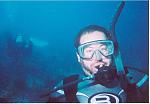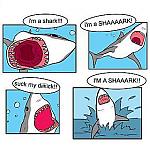Our publisher told me that when he was originally certified by NASDS, removing the 1st stage, and breathing directly off the cylinder valve was a skill all were trained to do.
Do you think this drill is some rediculous practice with no benefit, or is this in some way valuable?





 Reply With Quote
Reply With Quote

 Visit us at
Visit us at 






